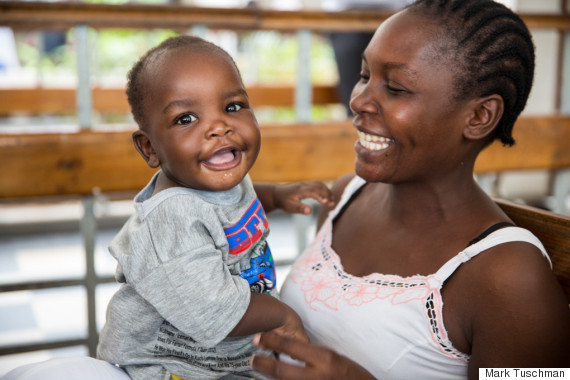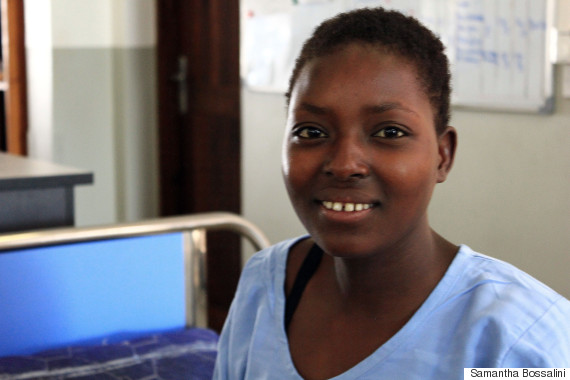My husband and I are expecting our first child in September, a prospect that fills me with both joy and fear.
Like most patients in developed countries, my husband and I expect high-quality medical care to be the standard. We expect that the hospital and medical staff will have the skills, supplies and equipment they need to take care of our baby and me. We expect that my husband will be by my side during delivery. We expect to leave the hospital with a healthy newborn, ready to face our fears about whatever comes next.
Over 7,000 miles away, the contrast is staggering.
In Tanzania, the quality of maternal healthcare, and maternal mortality rates, are improving gradually. Yet, an average of 22 women still die every day. For every 1 woman who dies, it is estimated that 20 more will develop an injury, infection or life changing disability like obstetric fistula.

In Dar es Salaam, Tanzania's largest city, mothers-to-be expect to share a hospital bed with 2-3 other women. They expect to deliver alone because there's no space for the father or family to provide support.
I can't help but wonder: if I lived in Tanzania, would I be one of the 22 women torn away from their family each day? Would I become one of the silent tragedies, left with a debilitating condition, unable to work or participate in my community?
On my most recent trip to Tanzania, I met women whose stories of loss, grief and survival made my own fears about motherhood seem insignificant. These women were recovering from surgery to repair obstetric fistula, an injury sustained during childbirth that results in chronic incontinence. In most cases the babies do not survive the traumatic delivery.
These women hadn't received the basic level of care they needed to keep them and their babies safe. Across the country, women who have lived through the grief, shame and isolation associated with obstetric fistula expect the worst from future pregnancies.

Malela is a prime example. At 16-years old, she has experienced the pain of losing a child, and the physical and emotional effects of living with fistula. When asked about her plans for the future, now that she is recovering from surgery to repair her fistula, she laughed and said, "I'm never having sex again." It was meant as a joke, but her comment had a heartbreaking poignancy. After her devastating ordeal, this young girl sees grief and trauma as inevitable consequences of pregnancy. Did Malela understand that if she'd had access to a higher quality of care things could have been different?
Low expectations among mothers-to-be in Tanzania are the status quo.
At Kupona Foundation we are working to improve the quality of maternal and newborn healthcare in Tanzania, and building brighter futures for Tanzanian families. Our implementing partner, CCBRT (Comprehensive Community Based Rehabilitation in Tanzania), is spearheading a comprehensive maternal and newborn healthcare program in partnership with the Government of Tanzania. They are already seeing measurable improvements in the standard of healthcare available in Dar es Salaam.
Based in the United States, Kupona Foundation acts as a bridge to Tanzania, working with singular focus to strengthen CCBRT's capacity and mobilize support for their work. Thanks to our partners, we channel funding and expertise to meet critical operational needs at CCBRT, empowering them to continue raising the bar for quality healthcare across the country. We also connect with people who share our passion and belief that all mothers-to-be should survive to meet their newborn child, providing these individuals with a direct channel to support life-changing programs.
Tomorrow is the 3 International Day to End Obstetric Fistula. On this day, we think about the millions of women worldwide, like Malela, who are living in pain, stripped of self-confidence, and isolated from their families and communities. Fistula is 100% preventable. High-quality care during delivery is all it takes. It's the absolute minimum that I will expect when it's my turn. Why should women like Malela expect anything less?